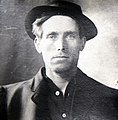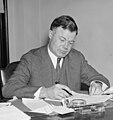
Introduction

- In trade unions, workers campaign for higher wages, better working conditions and fair treatment from their employers, and through the implementation of labour laws, from their governments. They do this through collective bargaining, sectoral bargaining, and when needed, strike action. In some countries, co-determination gives representatives of workers seats on the board of directors of their employers.
- Political parties representing the interests of workers campaign for labour rights, social security and the welfare state. They are usually called a labour party (in English-speaking countries), a social democratic party (in Germanic countries), a socialist party (in Romance countries), or sometimes a workers' party.
- Though historically less prominent, the cooperative movement campaigns to replace capitalist ownership of the economy with worker cooperatives, consumer cooperatives, and other types of cooperative ownership. This is related to the concept of economic democracy.
The labour movement developed as a response to capitalism and the Industrial Revolution of the late 18th and early 19th centuries, at about the same time as socialism. The early goals of the movement were the right to unionise, the right to vote, democracy and the 40-hour week. As these were achieved in many of the advanced economies of western Europe and north America in the early decades of the 20th century, the labour movement expanded to issues of welfare and social insurance, wealth distribution and income distribution, public services like health care and education, social housing and common ownership. (Full article...)
Selected article
The International Labour Organization (ILO) is a United Nations agency whose mandate is to advance social and economic justice by setting international labour standards. Founded in October 1919 under the League of Nations, it is one of the first and oldest specialised agencies of the UN. The ILO has 187 member states: 186 out of 193 UN member states plus the Cook Islands. It is headquartered in Geneva, Switzerland, with around 40 field offices around the world, and employs some 3,381 staff across 107 nations, of whom 1,698 work in technical cooperation programmes and projects.
The ILO's standards are aimed at ensuring accessible, productive, and sustainable work worldwide in conditions of freedom, equity, security and dignity. They are set forth in 189 conventions and treaties, of which eight are classified as fundamental according to the 1998 Declaration on Fundamental Principles and Rights at Work; together they protect freedom of association and the effective recognition of the right to collective bargaining, the elimination of forced or compulsory labour, the abolition of child labour, and the elimination of discrimination in respect of employment and occupation. The ILO is a major contributor to international labour law.
Within the UN system the organization has a unique tripartite structure: all standards, policies, and programmes require discussion and approval from the representatives of governments, employers, and workers. This framework is maintained in the ILO's three main bodies: The International Labour Conference, which meets annually to formulate international labour standards; the Governing Body, which serves as the executive council and decides the agency's policy and budget; and the International Labour Office, the permanent secretariat that administers the organization and implements activities. The secretariat is led by the Director-General, Gilbert Houngbo of Togo, who was elected by the Governing Body in 2022. (Full article...)May in Labor History
Significant dates in labour history.
- May 01 - In 1884 Proclamation of the demand for eight-hour workday in the United States. Two years later, in 1886, the general strike which eventually won the eight-hour workday in the United States, began. These events are today commemorated as May Day or Labor Day in most industrialized countries; Thomas Lewis died; the 1946 Pilbara strike occurred in Australia; International Woodworkers of America merged with the International Association of Machinists; Mike Watson was born; the Taksim Square massacre occurred in Turkey in 1977
- May 02 - Nazi Germany outlawed free trade unions and established the German Labour Front; Bernice Fisher died
- May 03 - The International Typographical Union was founded; the Bay View Tragedy occurred in 1886 in the U.S.
- May 04 - Haymarket Riot occurred in 1886 in the U.S.
- May 05 - John Sweeney was born; Jackie Presser stepped down as Teamsters president due to cancer; James Duncan was born
- May 06 - Miguel Contreras died; Frank Fitzsimmons died; Ludvik Buland was born
- May 07 - Miguel Contreras was born; Maurice Hutcheson was born; David Sullivan was born
- May 08 - Jerome Wurf was born; the Hard Hat riot occurred in the U.S. in 1970
- May 09 - Elias Motsoaledi died; 1934 West Coast Waterfront Strike began in the U.S.
- May 10 - Isaac Theophilus Akunna Wallace-Johnson died; Walter Philip Reuther died; the 2008 Skorpion Zinc Strike began in Namibia
- May 11 - William Konyha was born; Pullman Strike began in 1894 in the U.S.
- May 12 - Coal Strike of 1902 began in the U.S.; the American Maritime Officers was founded
- May 13 - Henk Sneevliet was born
- May 14 - Arthur Moore (labor leader) was born; the Ådalen shootings occurred in Sweden in 1931
- May 15 - Pope Leo XIII issued Rerum Novarum; Winnipeg General Strike of 1919 began; George Mock stepped down as president of the Teamsters after eight days; the Ulster Workers' Council Strike began in 1974 in Northern Ireland; the U.S. Supreme Court decided Gompers v. Buck's Stove and Range Co.; Arthur Creech Jones was born
- May 16 - The Minneapolis General Strike of 1934 began in the U.S.; the Iraqi Federation of Trade Unions was founded; the U.S. Supreme Court decided NLRB v. Mackay Radio & Telegraph Co.; A. Philip Randolph died
- May 17 - The first Starbucks Workers Union was organized; former trade union leader Francisco Largo Caballero was deposed as prime minister of Spain
- May 18 - Bill Haywood died; the Atlanta transit strike of 1950 began in the U.S.
- May 19 - James P. Hoffa was born; the Battle of Matewan began in 1920 in the U.S.
- May 21 - Cyrus S. Ching was born
- May 22 - Agustín Tosco was born; the Steel Workers Organizing Committee was disbanded in 1942; the United Steel Workers of America was founded in 1942
- May 23 - The "Battle of Toledo" occurred during the Auto-Lite Strike in 1934 in the U.S.
- May 24 - The Pennsylvania Association of Staff Nurses and Allied Professionals was founded; Peter J. Brennan was born
- May 25 - Philip Murray was born; the Remington Rand strike of 1936–1937 began in the U.S.; Basdeo Panday was born; Will H. Daly was born
- May 26 - Actors' Equity Association was founded; the Ohio Federation of Teachers was founded
- May 27 - The U.S. Supreme Court decided In re Debs
- May 29 - The Disney animators' strike began in 1941 in the U.S.; the Cordobazo uprising began in 1969 in Argentina; the 2006 TTC wildcat strike began in Canada
- May 30 - William Sidell was born; the Memorial Day massacre of 1937 occurred in the U.S.; the U.S. Supreme Court decided Lehnert v. Ferris Faculty Association
- May 31 - W. A. Boyle died
More Did you know (auto-generated)
- ... that the murder of Luisa Lallana sparked a general strike in Rosario, Argentina?
- ... that the day after returning to Atlanta following his Nobel Peace Prize acceptance in 1964, Martin Luther King Jr. joined picketers who were on strike against Scripto?
- ... that in 1977, Appalachian folk singer Phyllis Boyens performed at a Christmas benefit concert to support Kentucky coal miners who had been on strike for 17 months?
- ... that 55,000 Berlin workers went on strike on 28 June 1916 to protest the arrest and trial of anti-war campaigner Karl Liebknecht?
- ... that Italian anarchists founded the first trade union for bakers in Argentina?
- ... that after being arrested for organizing a general strike in 1920, S. Girinis was sent to the Soviet Union following a Soviet-Lithuanian exchange of political prisoners?
Related Portals
Selected image
Selected Quote
"The first thing a dictator does is abolish the free press. Next he abolishes the right of labor to go on strike."
|
— George Seldes |
Did you know
- ...that Benjamin Aaron helped negotiate the first contract between a county and its public employee union in California history in 1968?
- ...that an ongoing strike by Gaelic footballers and hurlers in County Cork, Ireland, has led to Irish Prime Minister Bertie Ahern asking for the players and the county board to resolve their dispute?
- ...that Ron Carey was the first Teamsters General President elected by a direct vote of the membership?
Topics
Get involved
Associated Wikimedia
The following Wikimedia Foundation sister projects provide more on this subject:
-
 Commons
Commons
Free media repository -
 Wikibooks
Wikibooks
Free textbooks and manuals -
 Wikidata
Wikidata
Free knowledge base -
 Wikinews
Wikinews
Free-content news -
 Wikiquote
Wikiquote
Collection of quotations -
 Wikisource
Wikisource
Free-content library -
 Wikiversity
Wikiversity
Free learning tools -
 Wiktionary
Wiktionary
Dictionary and thesaurus
-

-

-

-

-
Random portal
Purge server cache





































































